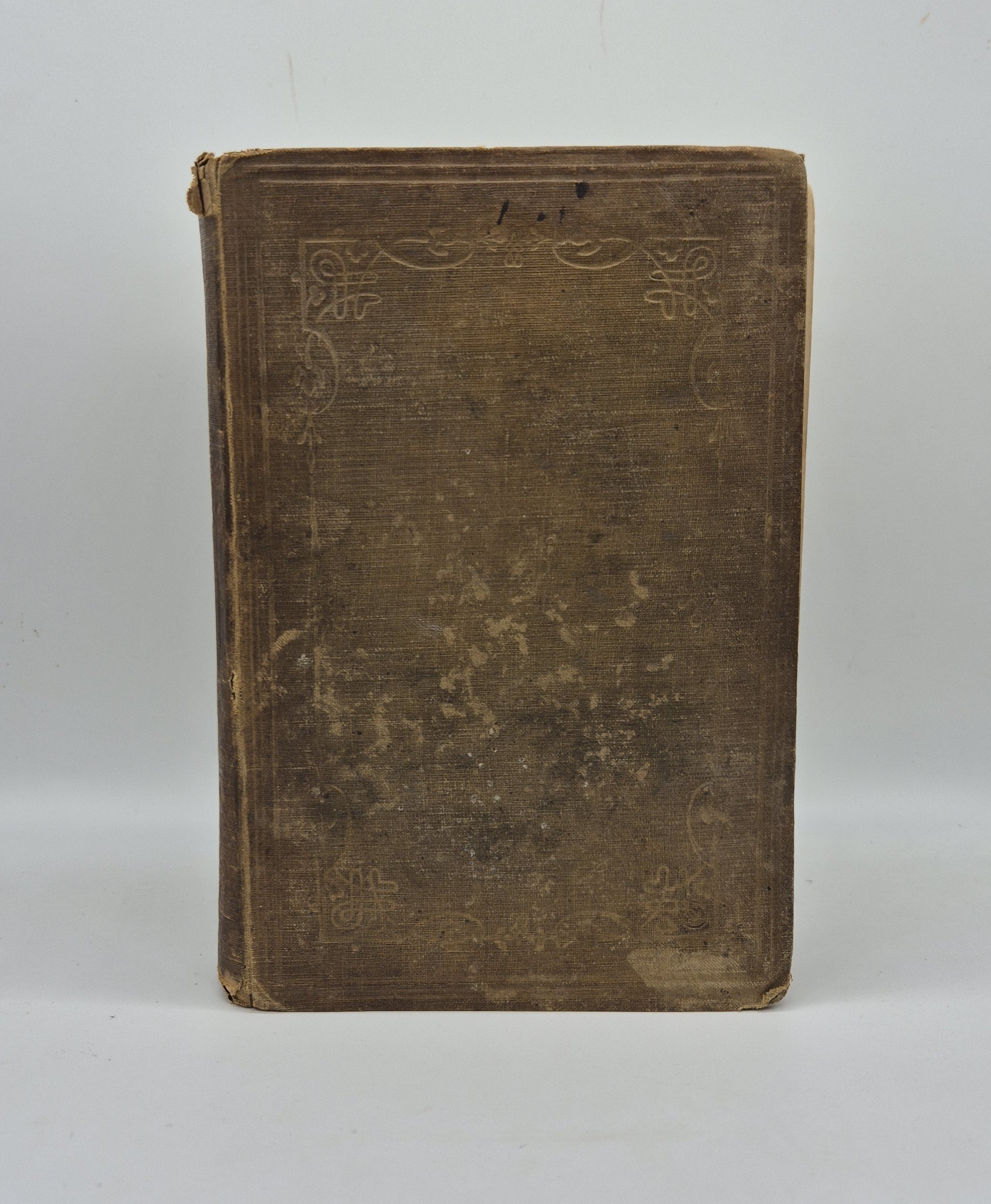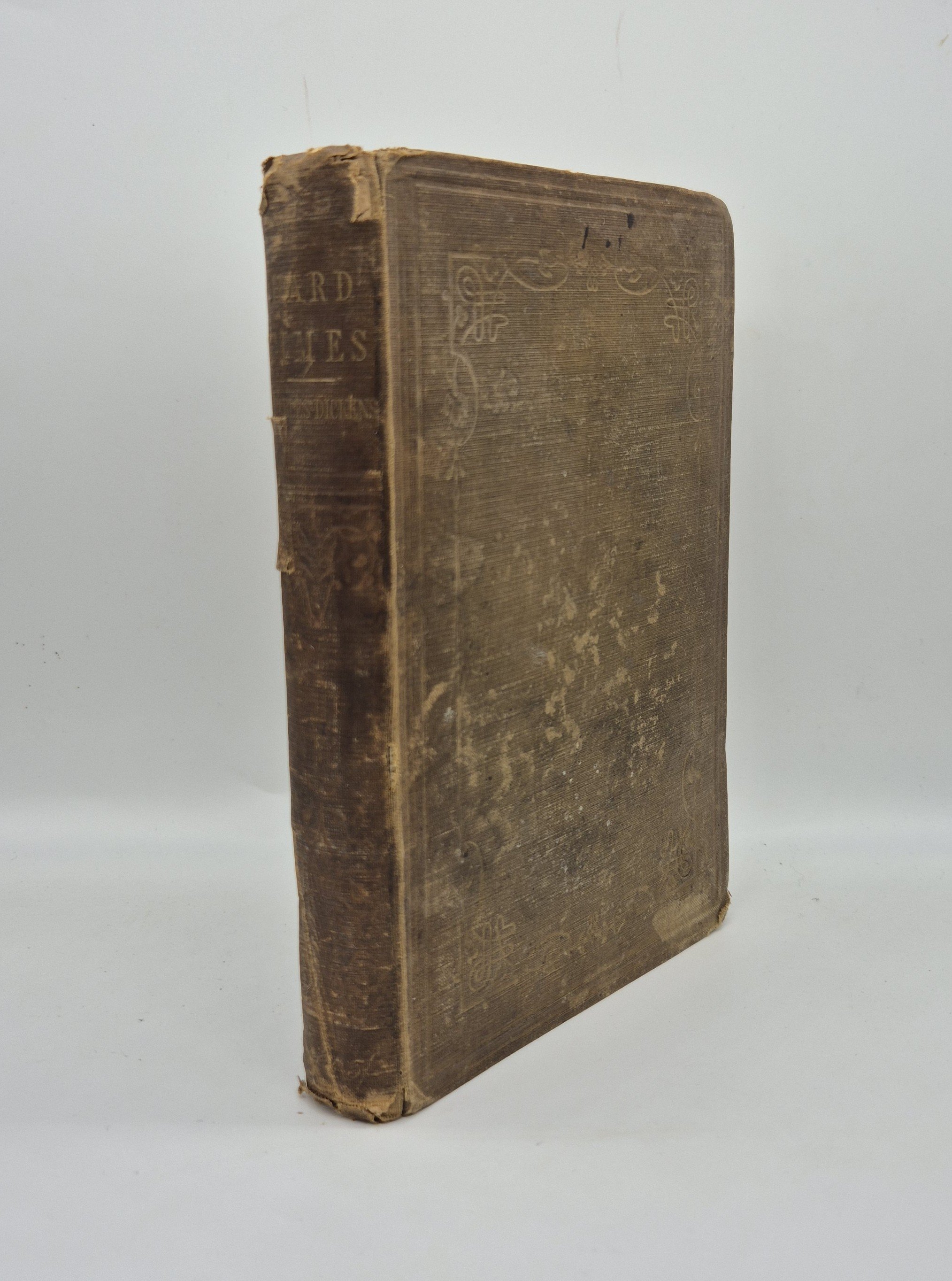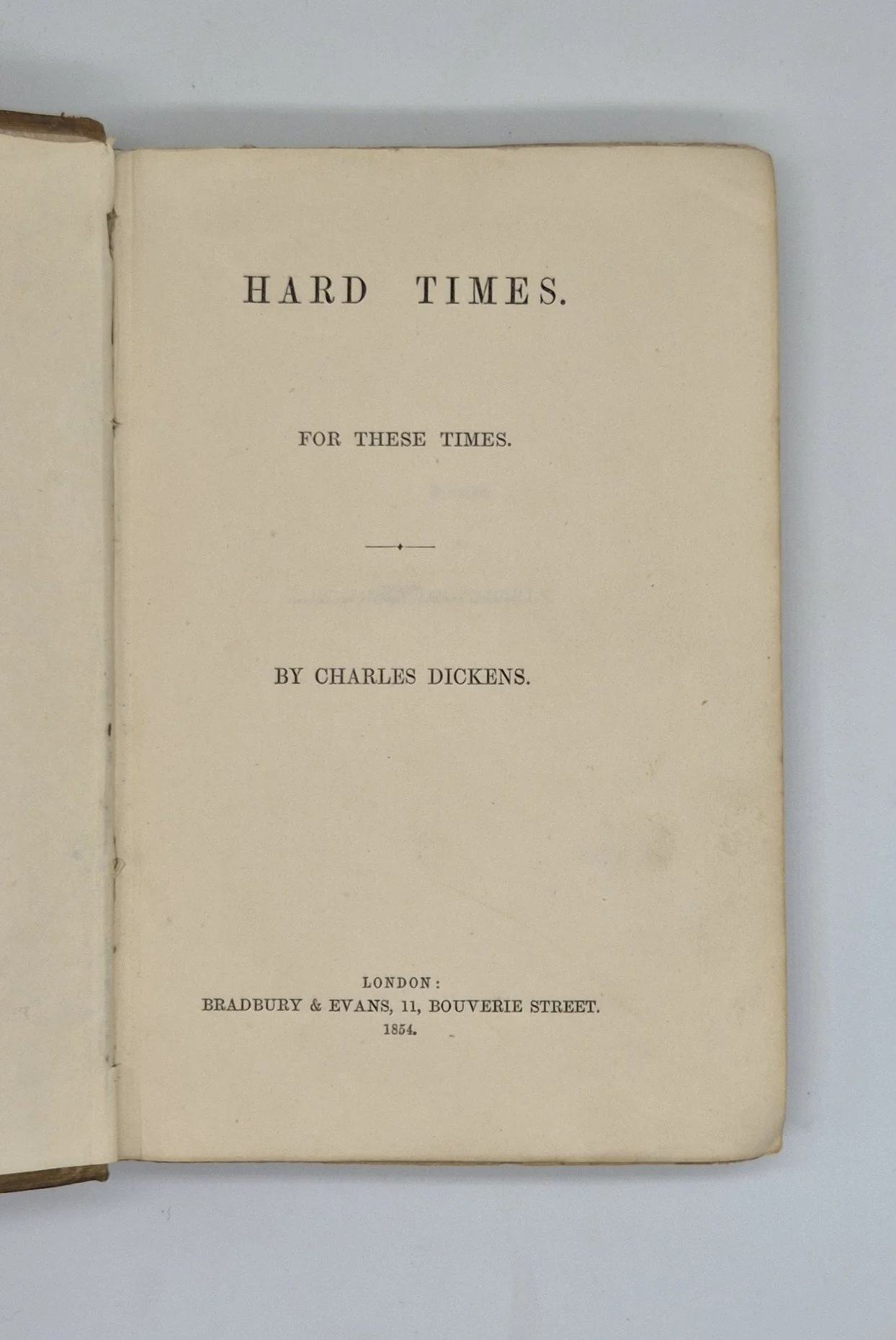


DICKENS, Charles. Hard Times.
London: Bradbury & Evans, 1854
8vo., original olive-green publisher’s cloth, embossed with decorative border in blind to both boards; spine lettered in gilt and similarly decorated in blind; pale yellow endpapers; pp. [vii], viii, [iii], 4-352; a good copy, the binding rather heavily rubbed and bumped at corners; darkened and split along spine; sometime repaired at tips, though with original spine remaining chipped and fraying; boards slightly warped inwardly at corners; lacking ffep; split at internal gutters with some webbing showing through; retaining both full and half titles; neat ink name to half; internally quite clean; the odd finger mark, spot, and smudge; one or two folded corners; a good copy, collated complete, in the original publisher’s binding.
First edition in book form. This the original first issue, in the publisher’s cloth, with the price of 5/ in gilt to foot of spine (rather heavily rubbed, but present), and p. 244 misnumbered 44.
First published in Household Words between April and August 1854, this first appearance in book form appeared shortly after the final installment on August 12th. It was Dickens’ tenth novel, and was also his shortest, in which he moved away from the familiar setting of London to base the story in the principal city of Coketown (a loose parody of the city of Manchester). It was the author’s intention to educate the general public on the working conditions of factory towns, and the duhumanising effect of industrial practices - "My satire is against those who see figures and averages, and nothing else", he wrote at the time. The plot focuses, in three parts (‘Sowing’; ‘Reaping’ and ‘Garnering’) on Mr Thomas Gradgrind, a utilitarian headmaster who raises his children Louisa and Tom on his questionable moral principals - with mixed results.
The book was one of only two novels by Dickens which did not include illustrations, and reviews of his strongly political tone were similarly varied. George Bernard Shaw, writing in a later introduction to the Complete Works, claimed that Hard Times was a "passionate revolt against the whole industrial order of the modern world", but also that readers may find the change ‘difficult’ to contend with. Macaulay was less reserved, publicly attacking Dickens for his “sullen socialism”.
The book remains one of the most important commentaries on Victorian society at the time, and is nice to find in the original first issue cloth.
London: Bradbury & Evans, 1854
8vo., original olive-green publisher’s cloth, embossed with decorative border in blind to both boards; spine lettered in gilt and similarly decorated in blind; pale yellow endpapers; pp. [vii], viii, [iii], 4-352; a good copy, the binding rather heavily rubbed and bumped at corners; darkened and split along spine; sometime repaired at tips, though with original spine remaining chipped and fraying; boards slightly warped inwardly at corners; lacking ffep; split at internal gutters with some webbing showing through; retaining both full and half titles; neat ink name to half; internally quite clean; the odd finger mark, spot, and smudge; one or two folded corners; a good copy, collated complete, in the original publisher’s binding.
First edition in book form. This the original first issue, in the publisher’s cloth, with the price of 5/ in gilt to foot of spine (rather heavily rubbed, but present), and p. 244 misnumbered 44.
First published in Household Words between April and August 1854, this first appearance in book form appeared shortly after the final installment on August 12th. It was Dickens’ tenth novel, and was also his shortest, in which he moved away from the familiar setting of London to base the story in the principal city of Coketown (a loose parody of the city of Manchester). It was the author’s intention to educate the general public on the working conditions of factory towns, and the duhumanising effect of industrial practices - "My satire is against those who see figures and averages, and nothing else", he wrote at the time. The plot focuses, in three parts (‘Sowing’; ‘Reaping’ and ‘Garnering’) on Mr Thomas Gradgrind, a utilitarian headmaster who raises his children Louisa and Tom on his questionable moral principals - with mixed results.
The book was one of only two novels by Dickens which did not include illustrations, and reviews of his strongly political tone were similarly varied. George Bernard Shaw, writing in a later introduction to the Complete Works, claimed that Hard Times was a "passionate revolt against the whole industrial order of the modern world", but also that readers may find the change ‘difficult’ to contend with. Macaulay was less reserved, publicly attacking Dickens for his “sullen socialism”.
The book remains one of the most important commentaries on Victorian society at the time, and is nice to find in the original first issue cloth.
